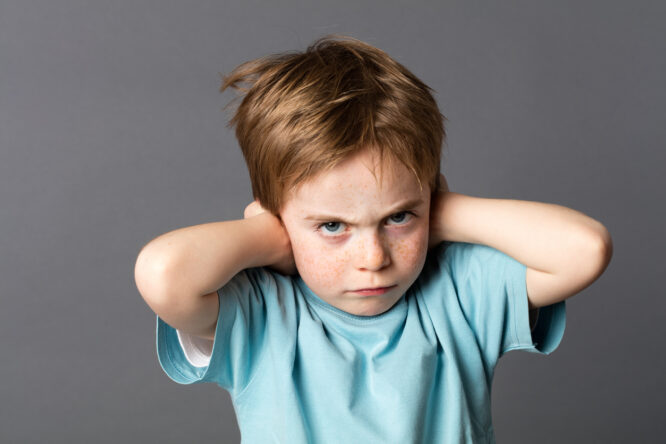No family is perfect, but there’s a big difference between normal family quirks and serious dysfunction.

Growing up in a dysfunctional household can leave deep emotional scars that last well into adulthood. So how do you know if your family’s issues went beyond the typical ups and downs? Here are some of the most obvious signs that you grew up in a dysfunctional family.
1. Emotional needs went unmet.

In dysfunctional families, kids’ emotional needs often fall by the wayside. If your parents were absent, self-involved, or just ill-equipped, you likely grew up feeling unseen and unheard. Healthy families create a nurturing environment where a child’s feelings matter. If your emotional needs were chronically neglected, it’s a red flag. You deserved better than being treated as an afterthought. Your feelings are valid, even if your family failed to honour them.
2. Substance abuse was common.

Excessive drinking or drug use by family members is a hallmark of dysfunction. If booze or pills were a constant presence in your home, it wasn’t normal or healthy. Substance abuse creates chaos, instability, and often leads to neglect or abuse. If your parents’ substance use took priority over your wellbeing, that’s not okay. You didn’t cause it and couldn’t control it. But you still carry the scars.
3. Your feelings were minimised.
 Envato Elements
Envato Elements
Dysfunctional families often dismiss or ridicule children’s emotions. If you were mocked for crying, told to “suck it up”, or made to feel weak for having feelings, that’s emotionally abusive. Your feelings deserve respect, even the messy or inconvenient ones. Berating a child for being sensitive is cruel. If your family consistently minimised your emotions, they wronged you. Your feelings are real and they matter, period.
4. Conflict was explosive or constant.

Volatile, explosive conflict or constant tensions are signs of a dysfunctional home. Walking on eggshells, regular blow-ups, and simmering resentments aren’t healthy. Disagreements are normal, but they shouldn’t be the daily norm. If your house felt like a powder keg ready to blow, something was very wrong. That level of chronic conflict takes a toll on kids. You deserved a home that felt safe and peaceful.
5. Boundaries were non-existent.

In dysfunctional families, boundaries are often trampled or missing entirely. If your privacy was routinely invaded, your space disrespected, and your “no” ignored, your family overstepped big time. Healthy families respect a child’s boundaries. Barging in, snooping, and overriding your autonomy wasn’t okay. You’re allowed to have limits and to have them honoured. Your boundaries are valid, even if your family ignored them.
6. Affection was conditional.

In unhealthy families, love and affection come with strings attached. If you only felt valued when you met certain conditions, that’s not unconditional love. You shouldn’t have to earn affection by getting good grades, being compliant, or squashing your needs. Real love doesn’t hinge on your achievements or behaviour. If your family’s affection felt conditional, it left you with emotional scars. You’re lovable, period — not just when you’re convenient.
7. Your emotions were policed.

Dysfunctional families often dictate which emotions are acceptable. If you were shamed or punished for feeling angry, sad, or hurt, that’s emotional policing. Healthy families allow kids to express the full spectrum of emotions, even the unpleasant ones. If your family demanded you mask your true feelings, that’s a boundary violation. You have a right to feel your feelings openly and honestly. Emotional authenticity matters.
8. Abuse was tolerated.

Families that turn a blind eye to abuse are deeply dysfunctional. If abusive behaviour was swept under the rug, minimised, or blatantly denied in your home, you were failed in a profound way. Abuse should never be enabled or covered up. If your family sacrificed your safety to keep the peace, that’s a massive betrayal. You deserved protection, and it’s not your fault if you didn’t get it.
9. Communication was warped.

In dysfunctional families, open communication is often shut down. If honesty was punished, questions dodged, and healthy discourse non-existent, your family dynamics were warped. Secrets, lies, and taboo topics create toxic disconnection. If attempts to communicate were routinely stonewalled, your family robbed you of a vital connection. You deserved an environment where your voice was welcomed and heard.
10. You had to play unhealthy roles.

Dysfunctional families often force kids into roles that aren’t appropriate for their age. If you were parentified, made to be the family mediator, or cast as the scapegoat, you were robbed of key parts of childhood. These rigid roles are stifling and leave lasting scars. If you had to subjugate your needs to play a role, your family failed you. You deserved to just be a kid.
11. Criticism was constant.

Chronically critical families erode self-esteem. If you grew up under a barrage of criticism, belittling, and critiques, it left an impact. Words have power, and hearing constant put-downs is hugely damaging for children. If nothing you did was ever good enough for your family, you likely internalised that message. But they were wrong. You’re worthy and valuable, even if they couldn’t see it. Don’t let their distorted vision define you.
12. Unpredictability was the norm.

Chaotic, unpredictable households keep kids on edge. If you never knew what to expect day-to-day, your home life was unstable and erratic. Healthy families provide consistency and routine that help kids feel secure. If you lived with chronic uncertainty, it was destabilising. You deserve to feel grounded and safe. It wasn’t your job to navigate their instability. That rollercoaster was unhealthy.
13. Your accomplishments went unnoticed.

In dysfunctional families, kids’ triumphs are often underplayed or outright ignored. If your successes and milestones were routinely brushed aside, rarely acknowledged, or overshadowed, that’s not normal. Your accomplishments, big and small, deserved celebration and recognition. If your family downplayed or disregarded your feats, they deprived you of vital validation. But your efforts and achievements still matter, whether they applauded them or not.





